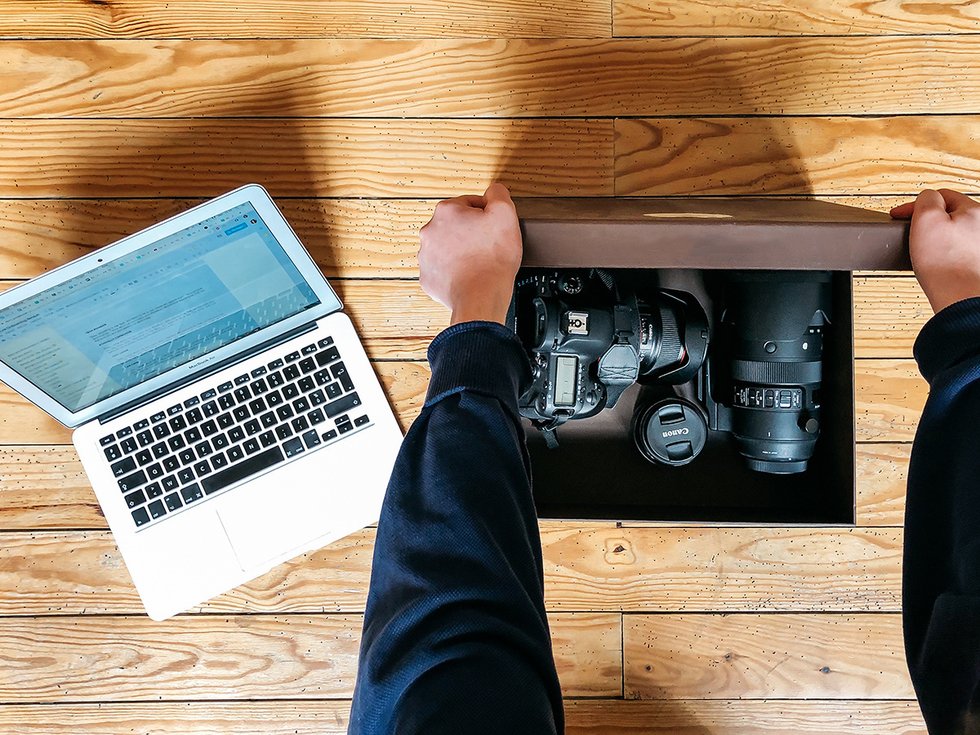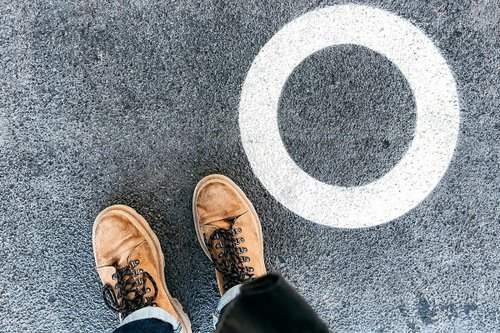I’m self-employed: what support can I get during the third lockdown?
Jan 05, 2021
5 mins


Writer and editor
Updated: January 5th 2021
Originally published on April 9th, 2020
When Boris Johnson announced the first lockdown in 2020, the effect on Britain’s self-employed workforce was instantaneous. Overnight, work dried up. Clients canceled contracts, meetings were postponed and projects were abandoned. Many of the country’s five million self-employed people—roughly 15% of the workforce—were left staring into a financial abyss. After dusting themselves up and getting back on their feet, self-employed workers in England face yet another lockdown, but this time round the Treasury has pledged more support.
According to the Institute of Fiscal Studies, almost half of the self-employedwill see their family income fall by at least 40% in the short run if work dries up. So just what measures has the Government put in place to protect self-employed workers during the third lockdown? And how accessible is financial support?
Who are self-employed workers?
Being self-employed means you work for yourself as a freelance or you are the owner of a business instead of working for a specific employer. You might work for one or several companies or clients and are responsible for finding and agreeing to the work you take on. From managing consultants to magicians, and graphic designers to gym instructors, the list of jobs that can be done on a self-employed basis is endless.
There are many advantages to being your own boss. The Self-Employment Review commissioned by the Government found that the perks include higher levels of flexibility, job satisfaction, and improved work/life balance. However, the study also revealed that self-employed workers miss regular income (12%), job security (10%), and benefits such as sick pay, holiday leave, and an employee pension (9%).
Self-employed workers amidst Covid-19 crisis
At times of crisis, such as the Covid-19 pandemic, self-employed workers feel the economic fallout acutely. Chancellor Rishi Sunak responded to mounting pressure over the new lockdown by doubling the level of financial support on offer to the self-employed. “So far we’ve provided £13.7 billion of support to self-employed people through the crisis—and I’ve always said we will continue to do everything we can to support livelihoods across the UK,” he said.
“The rapidly changing health picture has meant we have had to act in order to protect people’s lives and I know this is an incredibly worrying time for the self-employed. That is why we have increased the generosity of the third grant, ensuring those who cannot trade or are facing decreased demand can get through the months ahead.”
Below, our experts explain the Self-Employment Income Support Scheme (SEISS) Grant Extension, a program specific to helping freelancers through the Covid-19 crisis, and other benefits available in various scenarios.
1. I have lost all my work. What support is there for me?
The SEISS Grant Extension is available and comes in the form of two grants, one from November 2020 to January 2021 and the other from February to April 2021. Applicants must meet the same strict criteria, listed below, as the two previous grants required, even if they didn’t claim them:
- You started your business before April 2019.
- You filed a tax return for 2018-2019.
- You make up to £50,000 in trading profits.
- You intend to continue to trade in the tax year 2020-2021.
- You have lost profits due to Covid-19.
- At least half your income comes from self-employment.
The first grant extension will increase to cover 80% of average profits for the month of November, up from 40%, which increases the total level of the grant from 40% to 55% of trading profits over the three months. It will be paid out in a single installment and capped at £5,160. Details of the second grant, which runs from February 2021, have yet to be announced.
Applicants can apply for the third grant until January 29, 2020.
In the same way as the first two grants, some people won’t tick all the boxes, says Melissa Chuttur, an employment lawyer at Slater and Gordon. For example,“Many people who became self-employed after April 2019, did not submit their tax return for 2018-2019, or who have profited over £50,000, are not currently eligible,” she said.
2. I’m not eligible for SEISS. Now what?
If you’re not eligible—and the Institute of Fiscal Studies estimates that this might well be the case for up to two million self-employed people—there are other benefits, such as Universal Credit. This monthly payment towards living costs is for those who are unemployed or on a low income. Nearly 950,000 people applied for Universal Credit in the first two weeks of lockdown alone.
It’s also worth looking into New Style Job Seeker’s Allowance, which you might be able to claim with, or instead of, Universal Credit depending on your national insurance records, and Pension Credit.
3. Is there any other financial help I can get?
The Government has boosted benefits in response to Covid-19, including an increase in the standard allowance for Universal Credit and Working Tax Credit of £20 a week from April 6 for one year. The minimum income threshold for Universal Credit has also been temporarily relaxed.
The HMRC is also offering assistance, explains Vicki Field, HR director at Seven Legal, such as allowing account deferral on self-assessment payments until January 2021. “You can also defer VAT payments for three months,” she said. “Self-employed people may also be eligible to receive support with their tax affairs through HMRC’s Time To Pay service.”
Additionally, the Covid-19 package includes business interruption loans, plus small business grants for those who pay little or no business rates.
On your end, you can limit your outgoings as much as possible: many mortgage and loan providers are offering to freeze payments for three months while you might be able to cut a deal with your utility provider and credit card company.
4. I need to self-isolate. Will I get any sick pay?
Sadly not, says Ruby Dinsmore, employment lawyer at Slater and Gordon. “If you’re self-employed, or if you’re a zero-hours worker, you don’t qualify for statutory sick pay.”
You may, however, be eligible for the Test and Trace support payment. If you have been told to self-isolate, you live in England, you’re on a low income and you cannot work from home and will lose income because of this, your local council might be able to give you £500.
Under the Covid-19 legislation, the Government has made benefits such as Universal Credit and new style ESA more accessible in scenarios such as this one.
5. One company I work for pays me through PAYE. Does this make a difference?
Perhaps you’re a freelancer who also works part-time for a company on the payroll. Or maybe you’re self-employed and pay yourself through your own company. In these circumstances, you could qualify for the furlough scheme, which has been extended until the end of April 2021, explains Field, who runs the consultancy FieldHR. “If you are paid through PAYE, even if it is through your own company, you could make use of the Coronavirus Job Protection Scheme, which will cover 80% of your salary up to £2,500 per month if you are on furlough leave,” she said.
“In fact, if you work for a range of employers on PAYE, the scheme would work separately for each of them. The key difference is that if you are on PAYE you must be ‘furloughed’, and therefore cannot do any work, whereas you can still work on a self-employed basis.”
6. What responsibilities do employers have in terms of health and safety towards self-employed workers?
Employers have the same duty of care for contract staff and even third parties, such as visitors and clients, as they do for staff members, explains Field.
Employers have to follow strict Government guidelines to provide a safe environment and stop the virus spreading in the workplace. These include basic hygiene rules, such as more frequent handwashing, especially after eating or handling food, blowing your nose, sneezing or coughing, and going into and out of the workplace.
Let’s not forget that an employer’s duty of care includes mental health. “Every company should have a wellness strategy that considers how to protect the mental well-being of employees in these unprecedented times,” said Fields.
Information correct as of November 5, 2020.
Photo: Welcome to the Jungle
Follow Welcome to the Jungle on Facebook, LinkedIn, and Instagram, and subscribe to our newsletter to get our latest articles every day!

More inspiration: Grow your career

Is a master's degree still worth it?
During a perfect storm of soaring tuition costs, automation and novel ways of online learning, is a master's degree still worthwhile?
Mar 23, 2023

Contextual intelligence: the skill that allows you to make better decisions
Adapting and understanding change is an important skill to advance your career. Here's how you can improve your decision-making skills.
Aug 31, 2022

How to prepare for a performance review
Whether you're looking for a promotion or some extra support, solid groundwork and preparation are key to a successful performance review.
Jun 02, 2022

"I quit!" Three workers share their stories
Quitting can be stressful in life; the uncertainty for what the future holds can be intimidating. Here are three stories ending in liberation.
Mar 16, 2022

Do you really need to get out of your comfort zone?
With the help of one of our experts, Mackenzie Childs, an organizational psychologist, cognitive behavioral coach and founder of Blink...
Feb 08, 2022
The newsletter that does the job
Want to keep up with the latest articles? Twice a week you can receive stories, jobs, and tips in your inbox.

Looking for your next job?
Over 200,000 people have found a job with Welcome to the Jungle.
Explore jobs